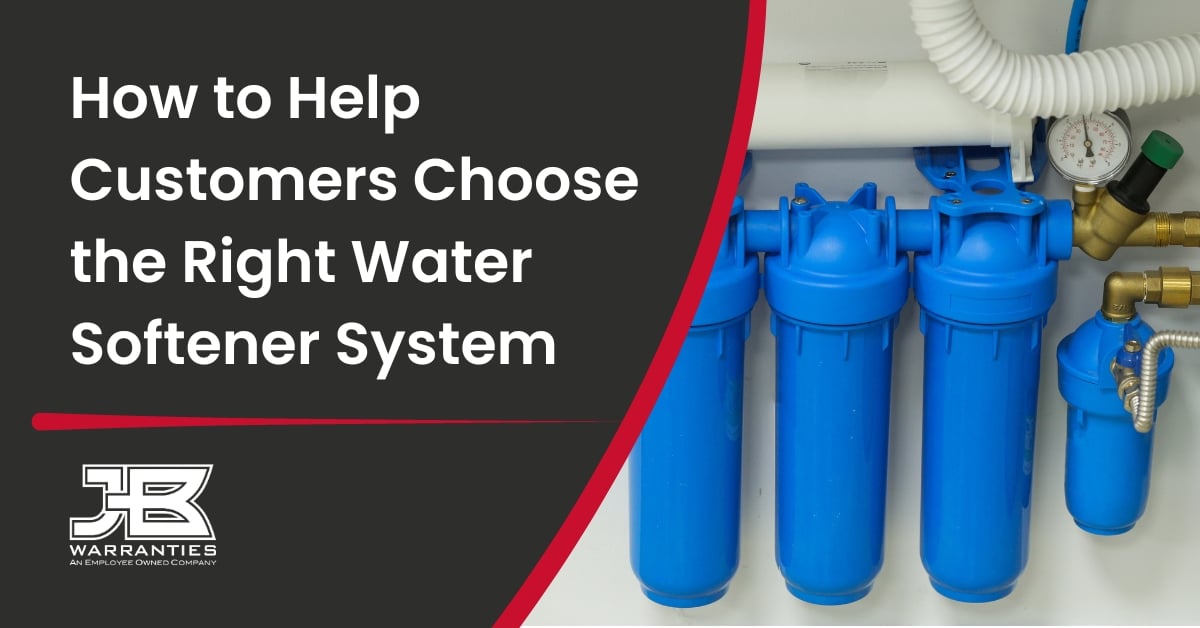
Did you know that 85% of the U.S. has hard water? From South Florida to South Dakota, there are numerous hard water regions where plumbers must navigate water softener maintenance and installation requests daily. These customers rely on water softeners to reduce the natural mineral levels in their home’s hard water supply and avoid risky scale build-up in pipes, reduced water pressure, and additional negative impacts on the lifespan of their plumbing appliances.
However, with so many options on the market today and tons of questions to be asked, customers may struggle to choose the best water softener options for their home’s hard water concerns. Fortunately, we’ve got them — and you! — covered. From determining levels of water hardness to discussing water softener maintenance, here’s how to help customers choose the right water softener system.
First, Understand Your Customers’ Water Softener Needs
When determining the right water softener for your customers, it can be helpful to begin by assessing the level of water hardness each customer is currently encountering. Plumbers can quickly determine a water supply’s hardness level using a basic water hardness test kit. The water hardness scale is measured in grains per gallon (GPG) of calcium carbonate and ranges from:
- <1 GPG = Soft
- 1-3.5 GPG = Slightly Hard
- 3.5-7 GPG = Moderately Hard
- 7-10.5 GPG = Hard
- >10.5 GPG = Very Hard
Understanding a home’s water hardness level helps plumbers better inform customers about their system selections, educate them on water softener maintenance needs, and inform them of any present risks. All it takes to estimate a customer’s water softener size requirement is the above GPG measurement and the customer’s average amount of daily water consumption.
For example, with the average person using roughly 80 gallons of water daily, a plumber can estimate that a four-person household uses approximately 320 gallons daily. Then, if a home’s water hardness is 8 GPG, you would multiply 8 by 320 to calculate that the homeowner would require a softener system that can remove at least 2,560 GPG of hardness minerals each day.
Understanding customers' daily water use also helps make better judgments on the water softener maintenance, features, and controls required. Softeners must go through a regeneration cycle every few days. Hence, it’s essential to consider how long a unit’s cycle takes, what controls the regeneration cycle, and how much water and salt a unit requires to ensure consistent water quality.
%20of%20calcium%20carbonate..jpg?width=400&height=200&name=The%20water%20hardness%20scale%20is%20measured%20in%20grains%20per%20gallon%20(GPG)%20of%20calcium%20carbonate..jpg)
Next, Help Customers Select Their Best Water Softener Option
With customers’ specific water softening needs in mind, plumbers can make much more calculated decisions on which models to offer. Of the many types and sizes to choose from, consider these top options when helping home and business owners choose their best water softener options.
Salt-Based Water Softeners
Salt-based water softeners are the most common type of system on the market. These systems come in a wide selection of sizes to provide any sized residence with the required water-softening capabilities. Also referred to as ion exchange softeners, these systems run hard water through a resin bed where hard ions (calcium and magnesium) are exchanged for soft ions (sodium or potassium).
Due to the ion exchange process, salt-based water softeners must “regenerate” every few days using a regularly replaced sodium chloride (salt) supply to remove the hard ions from the tank’s resin. Because this cycle limits a homeowner’s access to softened water for roughly 90 minutes, these systems can come equipped with timer controls that allow you to set a specific cycle time or demand-initiated regeneration (DIR) controls that detect when regeneration is needed.
Dual Tank Water Softeners
Generally speaking, a dual-tank water softener is a salt-based water softener with two resin tanks and a higher price point. Dual tank softeners are ideal for larger homes and those with a high GPH mineral density due to their ability to soften more significant amounts of heavy minerals and higher volumes of water. And unlike single-tank water softeners, dual resin tanks take turns running through the regeneration cycle to provide customers with constant access to softened water.
Salt-Free Water Softeners
Instead of the ion exchange process of salt-based softeners, salt-free softeners utilize a process called a template-assisted crystallization (TAC) system to neutralize heavy minerals. As hard water flows through the softener, heavy minerals get stuck on polymeric beads and crystallize, unable to attach and induce build-up or scale once passed through the water. Remember, the TAC process is not as effective in softening water in houses with high GPG levels and high water use.

Finally, Educate on Water Softener Maintenance and Warranty Needs
Now that you’ve helped your customer choose their best option for water softening, now would be the time to educate them on their water softener maintenance and warranty needs. While water softener maintenance needs will vary from model to model, basic maintenance tips to provide customers upon their new water softener installation include:
- Clean the water softener annually by dumping water and salt and scrubbing with dish soap.
- Monitor and add appropriate salt (rock, solar, or evaporated) to the brine tank every 6-8 weeks.
- Address problems as soon as possible, including regeneration timer, power, and salt usage issues.
Encouraging customers to follow these general water softener maintenance tips can help ensure a unit's longevity and support overall customer satisfaction. Likewise, it’s vital for plumbers to discuss extended warranty options with customers upon purchasing a new water softener to help provide peace of mind against unexpected system troubles and repairs.
If you need an extended warranty option you can depend on, look no further than JB Warranties Premium Protection Plan. We offer some of the best coverage in the plumbing and HVAC industry, which can be used on most major brands, and offers fast claim filing and reimbursement processes with an average turnaround of 30 days or less. Contact JB Warranties today to learn more about our robust extended warranty program and how it can be applied to your water softener maintenance.
Brian Bohannan
Vice President of Sales at JB Warranties






